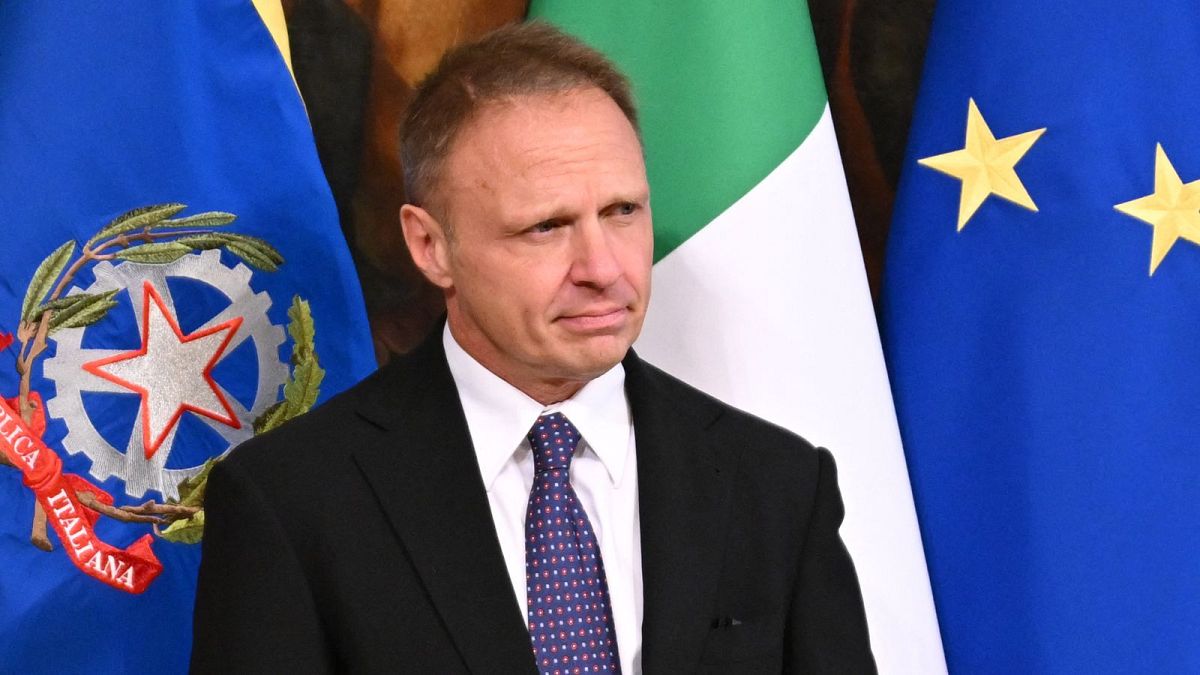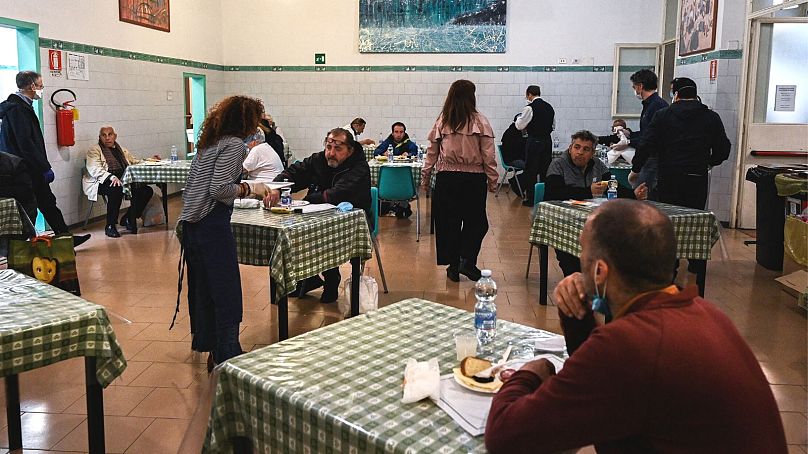The Italian minister Francesco Lollobrigida claimed that poor people in the country "eat better" because they shop directly from farmers and producers.
Italy's Minister of Agriculture, Food Sovereignty, and Forestry Francesco Lollobrigida was trying to explain the difference in the way Italians and Americans eat when he made the unfortunate statement: "In Italy, poor people eat better than the rich."
According to the minister, a member of Prime Minister Giorgia Meloni's Brothers of Italy party, while in the US there's a massive gap between the quality of food the rich and the poor eat, Italy has an "inter-classist" food system where poor people "buy high-quality food at low cost directly from the producers."
Not long after making the controversial statement, the minister received criticism from several opposition politicians.
"We don't even need parodies when there's a government that lives on another planet," said Elly Schlein, leader of the left-centre party Partito Democratico (PD).
According to the latest data available, the percentage of Italian families exposed to food instability was 1.3% in 2022, down from 1.7% the year before. In the south, this number goes up to 2.7%, while in the centre and north of the country is respectively 0.6% and 0.7%.
Food instability means that people are unable to eat regularly and maintain a healthy diet.
While these numbers may seem encouraging, data from ASviS, the Italian Alliance for Sustainable Development, referring to 2021 show that only 18.8% of Italians have access to proper nutrition - which includes four portions of fruit and vegetables a day.
Last year, Coldiretti - the country's national union for farm workers - reported that 2.6 million Italians were likely to resort to food banks to eat, because of soaring inflation and the higher cost of living. According to the union, Italian families were spending an average of €564 more on grocery shops last year.
While the gap in food quality for poor and rich people is a well-known problem in the US, where the poorer diet of people on lower incomes has been linked to the high cost of healthy food, there's no data backing Lollobrigida's statement that in Italy the poor eat better than the rich.
"For minister Lollobrigida the poor eat better than the rich. That's why [the government] eliminated the Citizens' income. We must do something for rich people, because alas, they don't eat well," said former labour minister Andrea Orlando, of the Five Star Movement.
People responded to the minister's comment on social media by sharing images of people in line at food banks, and asking if those relying on the services really deserved our envy.
"I wanted to show the minister these images: the Carmine food bank in Naples," wrote journalist Ciro Pellegrino on X, formerly known as Twitter.
"The meal is donated by businesses, volunteers, and donations. The line gets longer every day. What do you say, do they deserve our envy?"
Italy's government has recently cut the Citizens' income welfare benefits to thousands of families, as Meloni goes forward in her plan to eliminate the programme introduced by the Five Star Movement in 2019.
Lollobrigida is known as a controversial figure in Italian politics. Earlier this year, he sparked outrage when talking about the low natality rate in the country he said that Italians should not "give in to the idea of ethnical replacement."
The comment was for many a clear mention of the far-right, extremist, and racist conspiracy theory known as "The Great Replacement," which alleges that the European indigenous population - read as "white" - is being purposefully replaced by non-white people.
The minister has responded to criticism admitting that he was wrong. "I'm not sorry, I just used the wrong words. Not for racism, but ignorance," he said.

